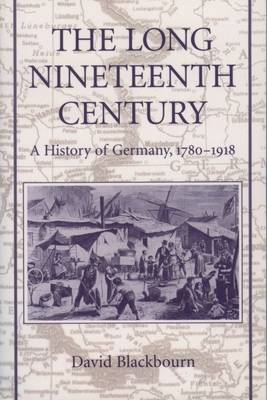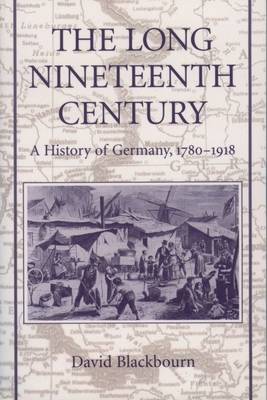
- Afhalen na 1 uur in een winkel met voorraad
- Gratis thuislevering in België vanaf € 30
- Ruim aanbod met 7 miljoen producten
- Afhalen na 1 uur in een winkel met voorraad
- Gratis thuislevering in België vanaf € 30
- Ruim aanbod met 7 miljoen producten
Zoeken
€ 48,45
+ 96 punten
Uitvoering
Omschrijving
In the late eighteenth century, German-speaking Europe was a patchwork of principalities and lordships. Most people lived in the countryside, and just half survived until their late twenties. By the beginning of our own century, unified Germany was the most powerful state in Europe. No longer a provincial "land of poets and thinkers," the country had been transformed into an industrial and military giant with an advanced welfare system.
The Long Nineteenth Century: A History of Germany, 1780-1918, is a masterful account of this transformation. Spanning 150 years, from the eve of the French Revolution to the end of World War I, it introduces students to crucial areas of German social and cultural history -- demography and social structure, work and leisure, education and religion -- while providing a comprehensive account of political events. The text explains how Germany came to be unified, and the consequences of that unification. It describes the growing role of the state and new ways in which rulers asserted their authority, but questions clichés about German "obedience." It also looks at the ways in which the factory, the railway, and the movement into towns created new social relations and altered perceptions of time and place. Drawing on a generation of work devoted to migration, housing, crime, medicine, and popular culture, Blackbourn offers a powerful and original account of a changing society, trying to do justice to the experiences of contemporary Germans, both women and men. Informed by the latest scholarship, The Long Nineteenth Century: A History of Germany, 1780-1918, provides a complete and up-to-date alternative to conventional political histories of this period and is essential reading for undergraduates in German history and political science courses.
The Long Nineteenth Century: A History of Germany, 1780-1918, is a masterful account of this transformation. Spanning 150 years, from the eve of the French Revolution to the end of World War I, it introduces students to crucial areas of German social and cultural history -- demography and social structure, work and leisure, education and religion -- while providing a comprehensive account of political events. The text explains how Germany came to be unified, and the consequences of that unification. It describes the growing role of the state and new ways in which rulers asserted their authority, but questions clichés about German "obedience." It also looks at the ways in which the factory, the railway, and the movement into towns created new social relations and altered perceptions of time and place. Drawing on a generation of work devoted to migration, housing, crime, medicine, and popular culture, Blackbourn offers a powerful and original account of a changing society, trying to do justice to the experiences of contemporary Germans, both women and men. Informed by the latest scholarship, The Long Nineteenth Century: A History of Germany, 1780-1918, provides a complete and up-to-date alternative to conventional political histories of this period and is essential reading for undergraduates in German history and political science courses.
Specificaties
Betrokkenen
- Auteur(s):
- Uitgeverij:
Inhoud
- Aantal bladzijden:
- 624
- Taal:
- Engels
Eigenschappen
- Productcode (EAN):
- 9780195076721
- Verschijningsdatum:
- 8/01/1998
- Uitvoering:
- Paperback
- Formaat:
- Trade paperback (VS)
- Afmetingen:
- 136 mm x 204 mm
- Gewicht:
- 580 g

Alleen bij Standaard Boekhandel
+ 96 punten op je klantenkaart van Standaard Boekhandel
Beoordelingen
We publiceren alleen reviews die voldoen aan de voorwaarden voor reviews. Bekijk onze voorwaarden voor reviews.











